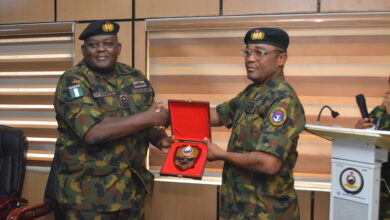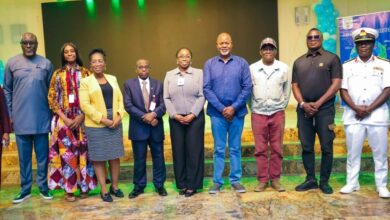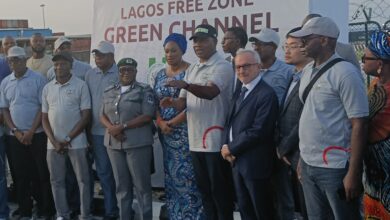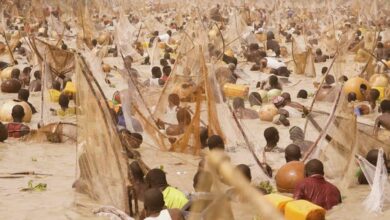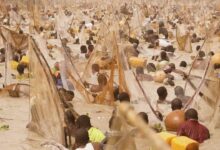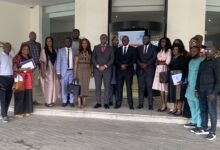Makoko community seeks help against Lagos govt’s planned demolition, displacement from waterfront
... We're most viable fishing hub in Lagos, residents insist
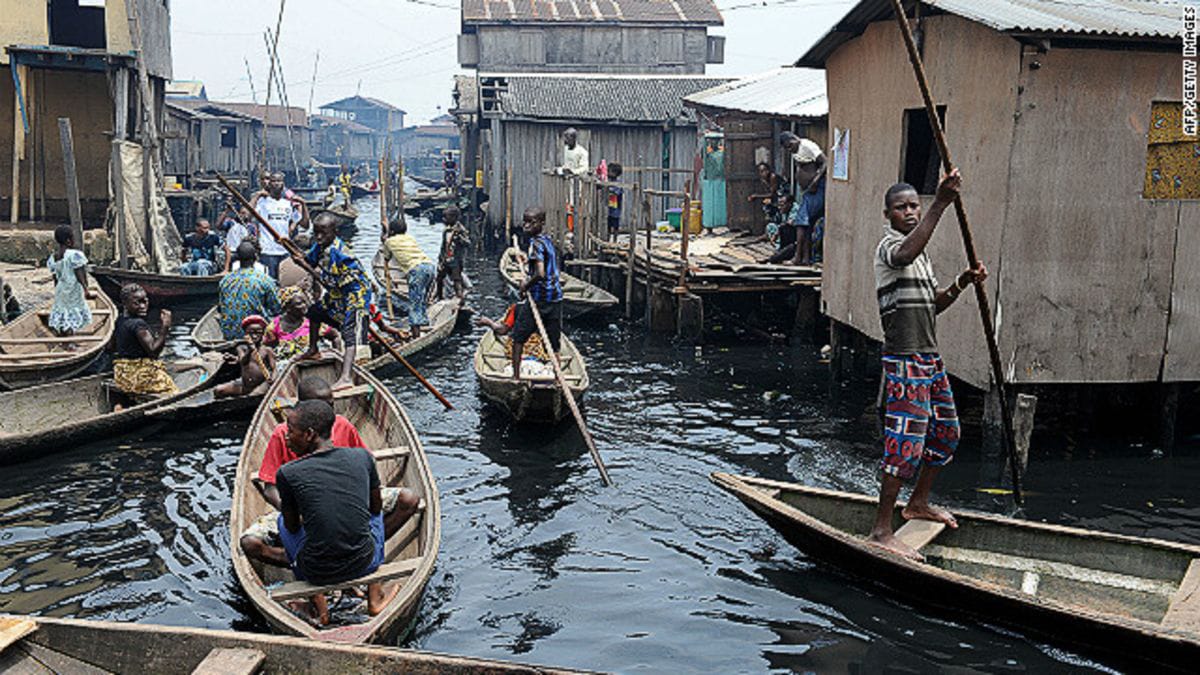
By Edu Abade
Residents of Makoko Community bordering Yaba, the University of Lagos, Akoka, Bariga and the Lagoon, have cried for help to stop the Lagos State Government from the planned demolition and reclamation that would see them permanently displaced from their ancestral settlement.
The residents, comprising community leaders, traditional rulers of Ilaje, Egun and Yoruba descent and representatives of local council development areas (LCDAs) made the plea during a meeting with civil society groups tagged: Reclamation, Displacement and Loss of Livelihoods in Makoko: A Community and Media Engagement organised by the Health of Mother Earth Foundation (HOMEF) in collaboration with other civil society organisations (CSOs) in Lagos at the weekend.
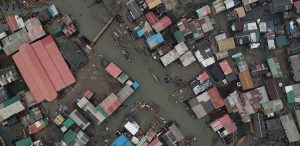
Speaking at the meeting, Director of HOMEF, Nnimmo Bassey, lamented that most of Nigerian cities were growing and developing autonomously and spontaneously without detailed and approved master plans, adding that the result of such development has been the growth of informal settlements in most cities across the country.
He decried a situation in which governments displace people without notice and use their economic, political and financial powers to encourage the development of clusters for the rich people, which they call new Government Reserved Areas (GRAs), while those inhabited by poor folks are dubbed slums or ghettoes.
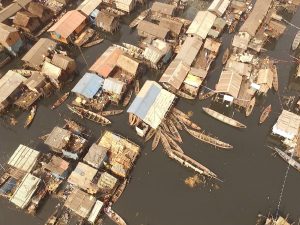
“Makoko, a predominantly fishing settlement with its rich cultural heritage and socio-economic activities, but with absence of services, including potable water, electricity, sanitation and schools, has proved to be a positive example of how to build a resilient city with an eye on tackling the challenges of climate change.
“Rather than plan to dredge, demolish and displace the residents of the community, the Lagos State government should support and assist them by providing their development needs to make Makoko a thriving and creative economic hub.
“Clearly, dredging and displacing the residents of Makoko is not the answer, but the government should encourage the fisher-folks, processors and market women by making the community a fish port and build a market with storage facilities for the residents. With all its attractions, Makoko Community has all the potentials of a tourist destination and as such, the Lagos State government must not create the impression of a city that eats up its people,” he stated.
In his address, Executive Director of Corporate Accountability and Public Participation Africa (CAPPA), Akinbode Oluwafemi, told participants that when the Lagos State government created the Ministry of Waterfronts, residents of the state thought it was for positive developmental purposes, but it has been turned into a ministry for forceful acquisition and eviction of residents of the waterfronts.
He commended members of the community for rising up to the challenge of confronting and resisting the plans of the state government to forcefully evict them from their ancestral settlement, insisting that the Lagos State government and all stakeholders should listen to the yearnings of the Makoko people, who have maintained that they have nowhere else to go, as the Makoko Waterfront adjourning Yaba, Somolu, Bariga and Oworonshoki, where they practice their fishing trade, remains their permanent abode, economic mainstay and means of livelihood.
Projects Officer of HOMEF, Steven Oduware, who moderated the discussions during the engagement, cautioned the authorities against a repeat of the Maroko experience of 1990, the December 21, 2020 demolition of Monkey Village without notice, the Bundu Ama displacement in Port Harcourt, Rivers State and demolitions in the Federal Capital Territory (FCT), Abuja, among others, which were carried out in gross violation of people’s right to decent shelter across the country.
He also stressed the need for consultations and consent of communities in the execution of any project capable of affecting the people negatively either in the short, medium or long-term, insisting that before embarking on any project, the government was supposed to engage with the people and share the Environment Impact Assessment (EIA) with communities with a view to ensuring accountability, equity and fairness.
“It is curious that whenever government decides to execute projects that directly impact the lives of citizens, its officials just copy other EIAs without recourse to the peculiarity of the environment in which they want such projects cited. This had often led to alienation of the people from details of the environmental impacts on their communities, especially in the oil producing areas of the Niger Delta,” he said.
Representatives of the Makoko Community, who spoke at the meeting including the Baale Jeje Ayinde of Egun Makoko Waterfront, Baale Steven Aji, Elder Claudius Akintimehin, Evangelist Dosu Isaac and Chairman of Ori-Oke Community Development Area (CDA), Olasele Oluwatobi, appealed to the Lagos State government to permanently shelve the idea of displacing residents of the Makoko Waterfront through dredging and reclamation.
“We reject dredging, demolition and reclamation of Makoko, not only because it will cause us untold hardship, but also because it will constitute serious problems for residents of the upland areas during the rainy season. We, therefore, appeal to the Lagos State government to stop the dredging of Makoko.
“There are no fewer than seven canals in the Makoko area that empty rain and flood waters into the Lagoon and if the government insists on dredging the Makoko waterfront, it will spell doom for the entire vicinity. Dredging the waterfront will create serious erosion challenge in the entire state,” they said.
The residents, who wondered why the Lagos State government has not been able to provide social amenities and infrastructure for the Makoko Community in spite of the state’s huge Internally Generated Revenue (IGR), lamented that the government was only interested in acquiring the waterfront and sharing the slots among the rich cronies of government rather than engage the people.
Specifically, Baale Ayinde restated that the residents of Makoko, who have transcended several generations, were majorly fishermen and have been living in the area for several decades, adding: “We are fishermen. In 2012 under former Governor Babatunde Raji Fashola administration, the Lagos State government gave us 72 hours to quit the waterfront. But our lawyers sued the government, which stopped the process. “However, it seems the state government under Babajide Sanwo-Olu is bent on carrying out its plans to evict us from the waterfront, but we plead with the government to stop the move, as we have nowhere else to go. Since the dredging project commenced, we have noticed that all species of fish have migrated further into the sea to the extent that in the last eight years, we have to go further than five hours into the Lagoon to catch some fish, which was not the case in the past when the Makoko Waterfront had not been tampered with,” he lamented.
On his part, Oluwatobi urged all stakeholders to act fast to nip government’s planned displacement of the residents of Makoko in the bud, maintaining that the Lagos State government just put the plan on hold due to the 2023 general elections, alleging that it had concluded plans to displace the Makoko Community in order to pave way for the building of a Chinese Estate in the reclaimed area.
Bassey concluded by urging the representatives of Makoko to continue engagements and dialogue with all stakeholders since “talking is never too much” while Betty Abah of the Centre for Children’s Health Education, Orientation and Protection (CEE-HOPE), expressed concern that the Lagos State government was not aiming to stop at merely dredging the Makoko Waterfront, but was targeting extension of the project to build factories under a Public Private Participation (PPP) arrangement with the displacement of the over 200,000 residents of Makoko.
She restated the need for civil society organisations, community groups, the media and other activists to continue to resist existential threats from governments and remain the voices of the voiceless in a society replete with oppression and suppression of the fundamental rights of citizens.
On a final note, Director of Programmes at CAPPA, Philip Jakpor, urged the residents to forge a common front in the fight against displacement of the Makoko Community, as agents of government will always attempt to create division among them in their struggle for a just and fair society with citizens’ rights to life, shelter, potable water, sanitation, socio-economic rights freedom and legitimate means of livelihood.






